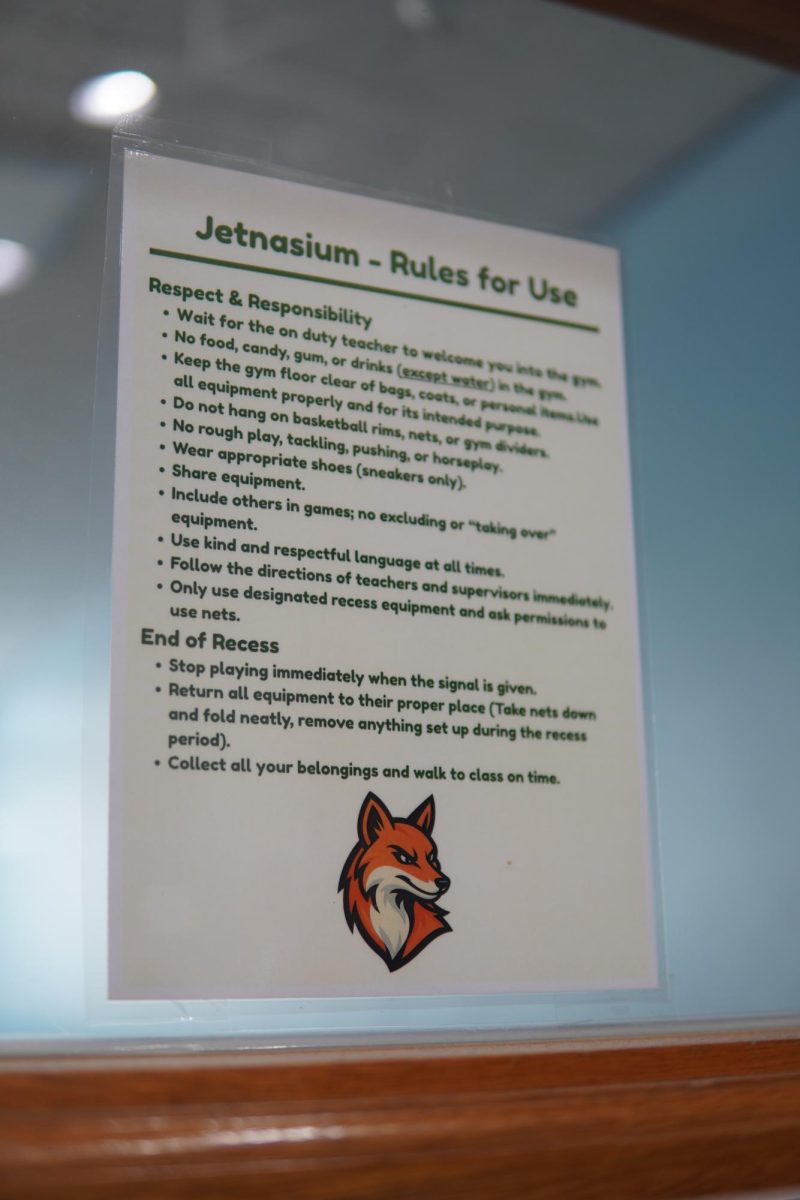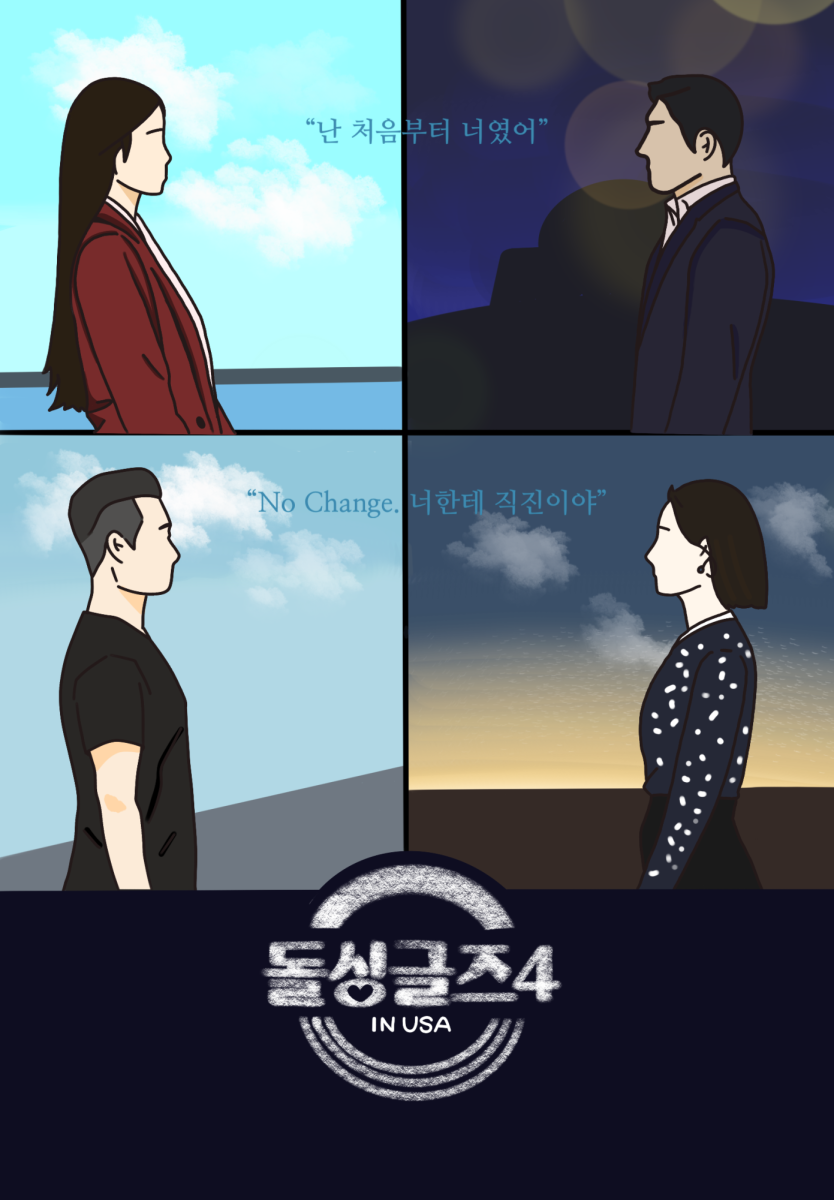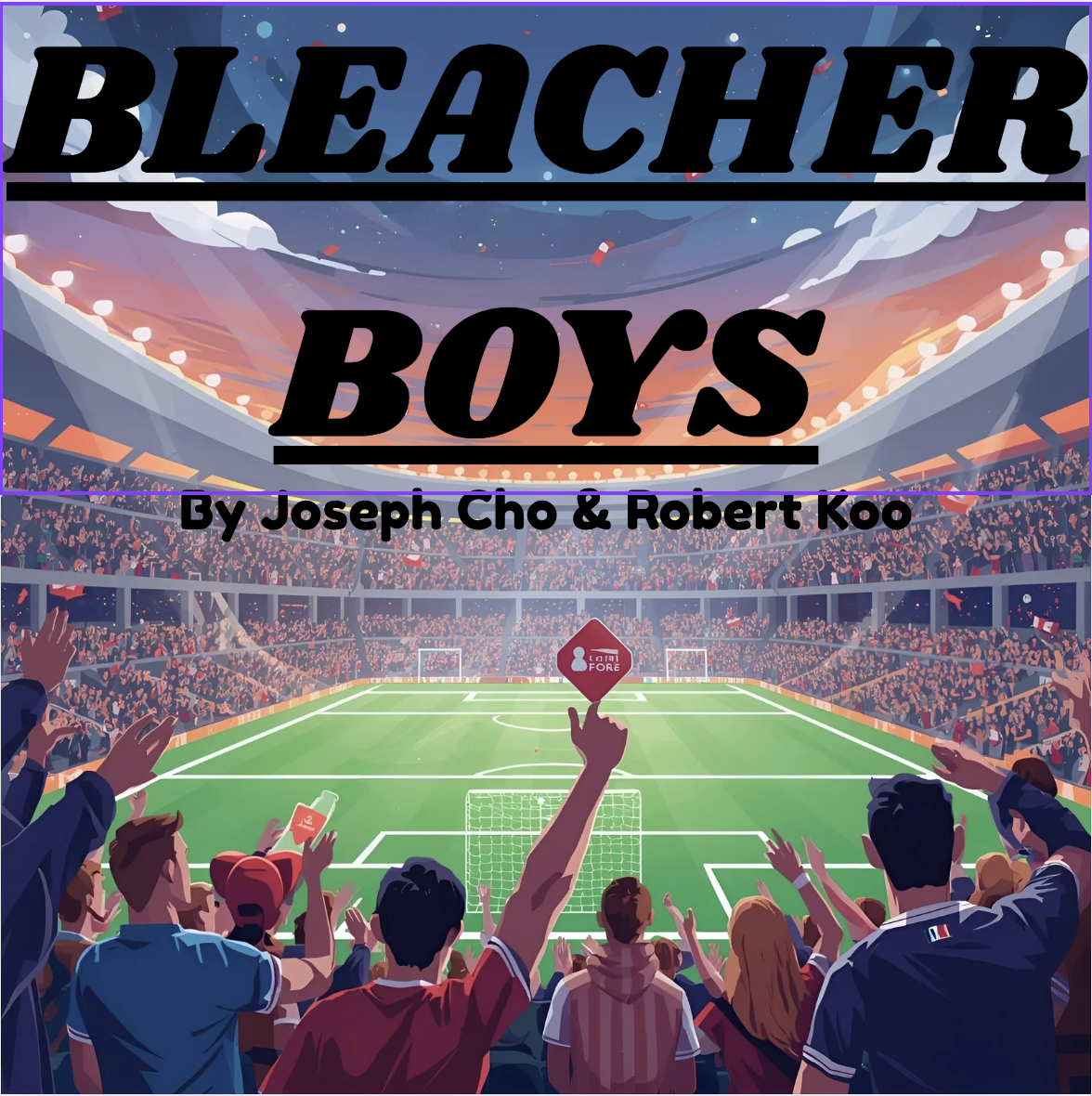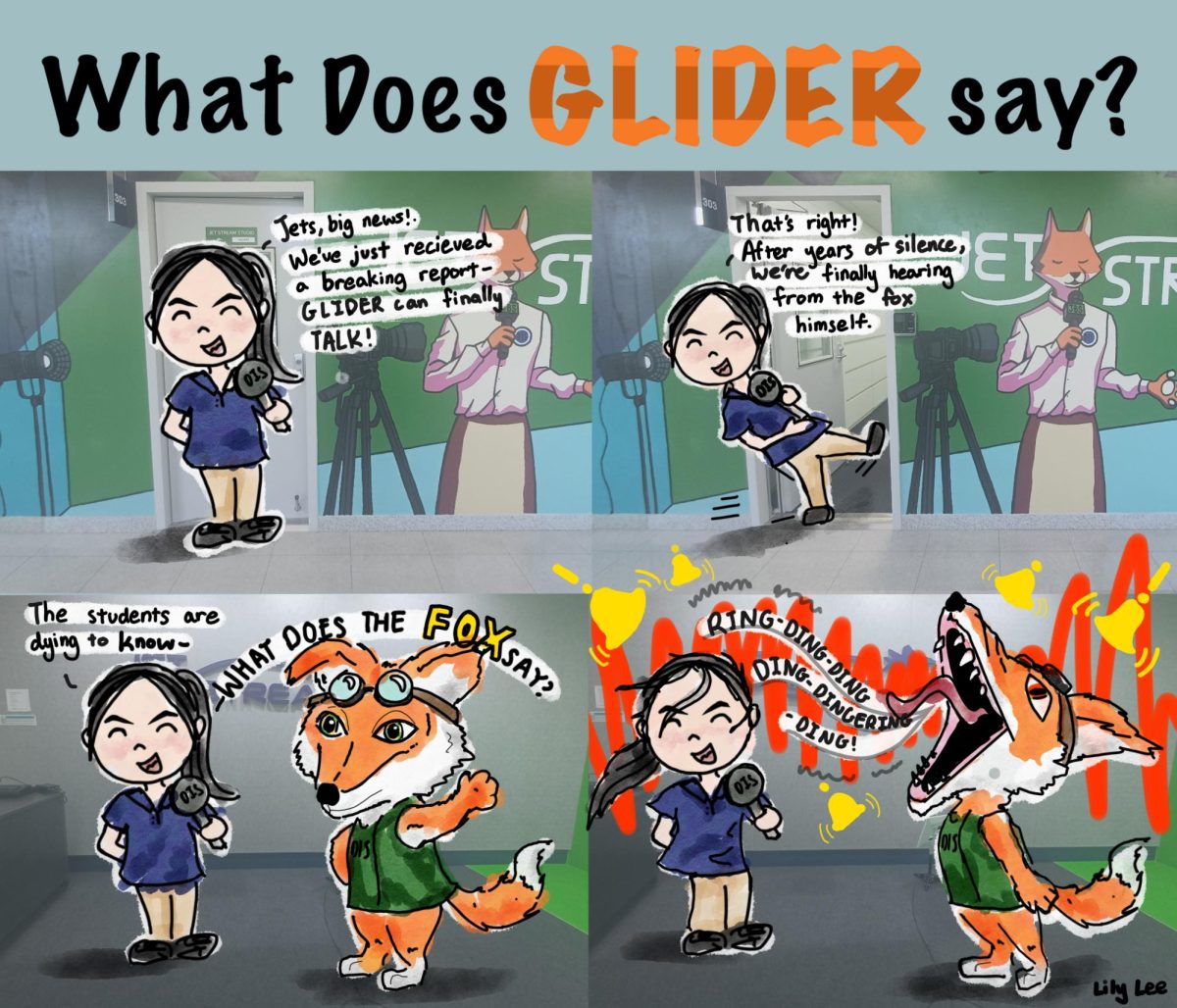Trigger Warning: This article includes mentions of crime, abuse, sexism, misogyny, and self-harm. The Flyover advises you to read with caution.
“I think we, humans, tend to follow whoever is the pioneer or has the most success. Andrew Tate’s rich, he does whatever he wants, he has a supercar, a good house, he probably lives a pretty happy life. I think when you see people who live a dream lifestyle, it’s just normal to be like, ‘Oh, maybe I should try it too,’” said sophomore Brian Hyun.
Andrew Tate, former kickboxer turned reality star turned masculinity guru, quickly gained a massive fan base of teenage boys and vulnerable men who strive to follow his millionaire lifestyle — supercars, jets, yachts, and women. But behind this extravagant facade, Tate tarnishes his “alpha male” name with atrocious crimes: Last December, he made headlines as the Romanian government arrested him for alleged charges of rape and human trafficking.
Tate’s renowned rhetoric centers around the “manosphere” — loose collections of internet forums that support men’s hatred towards feminism and women. A wolf in sheep’s clothing, he lures young adults with motivational nuggets, fitness advice, and finance “hacks” that only serve as a cover for his misogynistic messages.
Even schools spot damage as they witness “teens brainwashed by Andrew Tate” create borderline cults that take his words like gospel. They praise him as an “alpha male” who speaks out against the mainstream establishment, or, in Tate’s vocabulary, “the matrix.”
This influence now plagues South Korea as well. Loyal followers post clips of his podcasts and translate them into Korean with over 1.4 million views. 8 out of 10 individuals in the country reported to have encountered hate speech against women online. Alongside the fact that the term points toward the youth, 72.5% of male voters in their 20s voted conservative — even higher than male voters 60s and older (70.2%) — in Korea’s 2021 Seoul mayoral election. To exacerbate this issue, the new conservative party leaders preach misogynistic voices from equality in mandatory military service to hatred towards the Ministry of Gender Equality and Family.
Despite harmful messages, influencers like Tate can easily gain an audience through social media algorithms that feed off clickbaits. “I think I see him at least once while I’m just scrolling. I just respect it. I don’t hate him, I don’t love him. I think he’s pretty cool. He probably proved what he’s done…his method of influencing other people and proving that he can influence other people, I think that’s pretty good and that’s pretty amazing,” said Hyun.
Manipulated by his art of persuasion, users hop down a rabbit hole into an endless world of toxic masculinity and sexism. Tate and others take advantage of teens who desire a role model at a crucial and tumultuous time in their identity development. Negative consequences already surface as surveys suggest that one in five 16 to 29-year-olds hold a positive view towards Tate.
“They plan the videos and content so that nobody can disagree with them. It’s hard for even experienced adults to disagree. Obviously, they have more money, look very hot, show all these women, and have all these fancy cars, buildings, and houses. So it’s really, really hard for a typical male audience to even challenge their thoughts,” said Colin Ji, a junior.
Hyun also said, “None of the motivational quotes are false. I’m pretty sure it is stimulating, but it’s never fake. I think for people to be motivated, the key is to give a reason for action.” However, once the flare of manly “superiority” disappears, people can easily dissect the real message behind these gurus’ words.
Tate wields his authority and fame to constantly resupply his credibility. Statements such as, “I’ve said this many times in many different iterations on different podcasts,” can translate to “I’m important, and I know what I’m talking about,” which puts himself on a pedestal and implies he’s doing a favor.
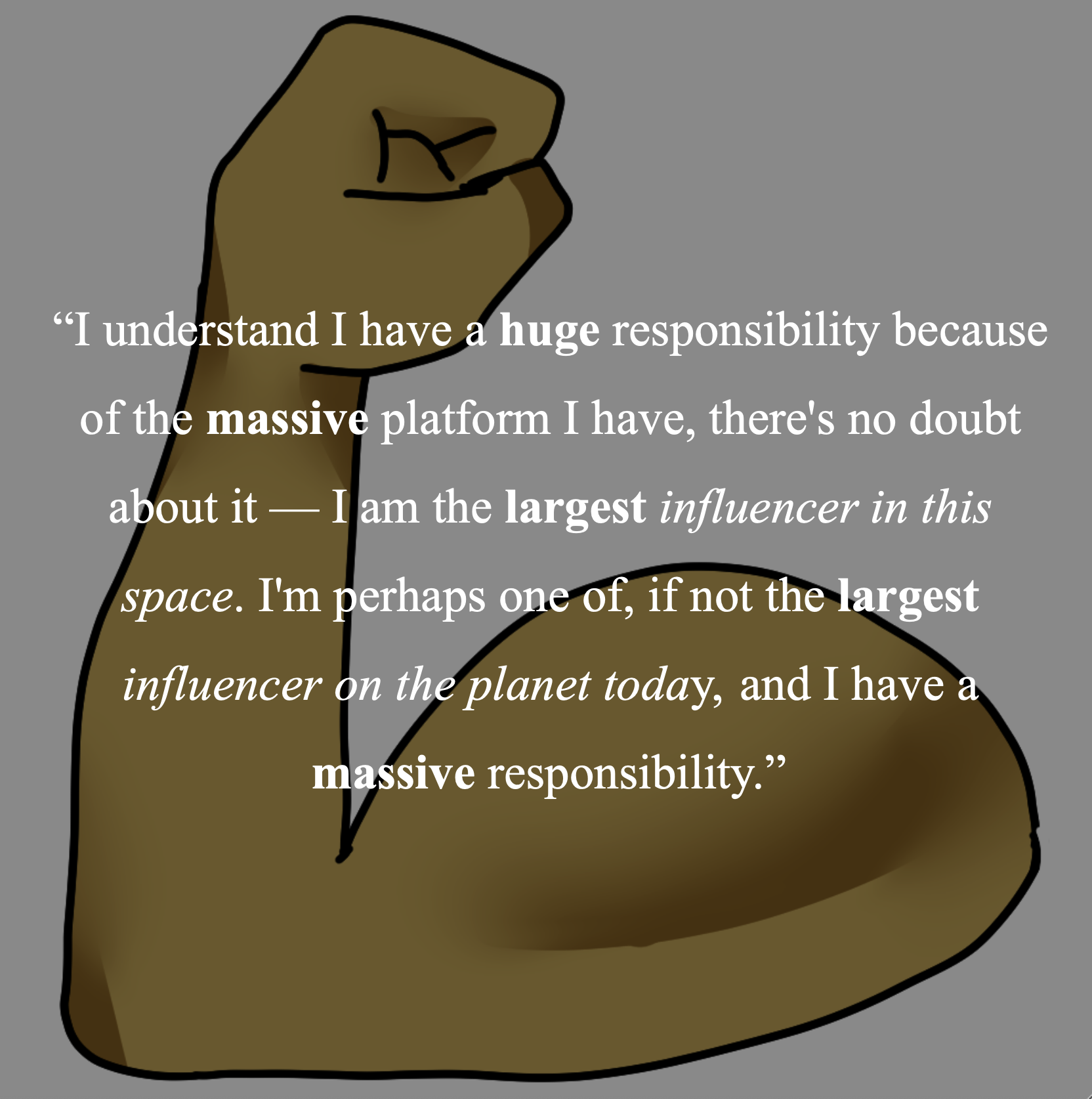
Here, he uses three synonyms to highlight his “large” platform and recycles five words that mean “big.” As he spews 46 words in less than twenty seconds, the listeners only catch the notion that he’s a huge deal.

Tate utilizes second-person pronouns that directly address the audience. This false sense of acknowledgment plays a big role in persuasion as it easily reaches out to young boys who seek validation. Ultimately, these words serve as a facade of genuine care for a “son” or “student.”
Mr. Nature-Wins-All:
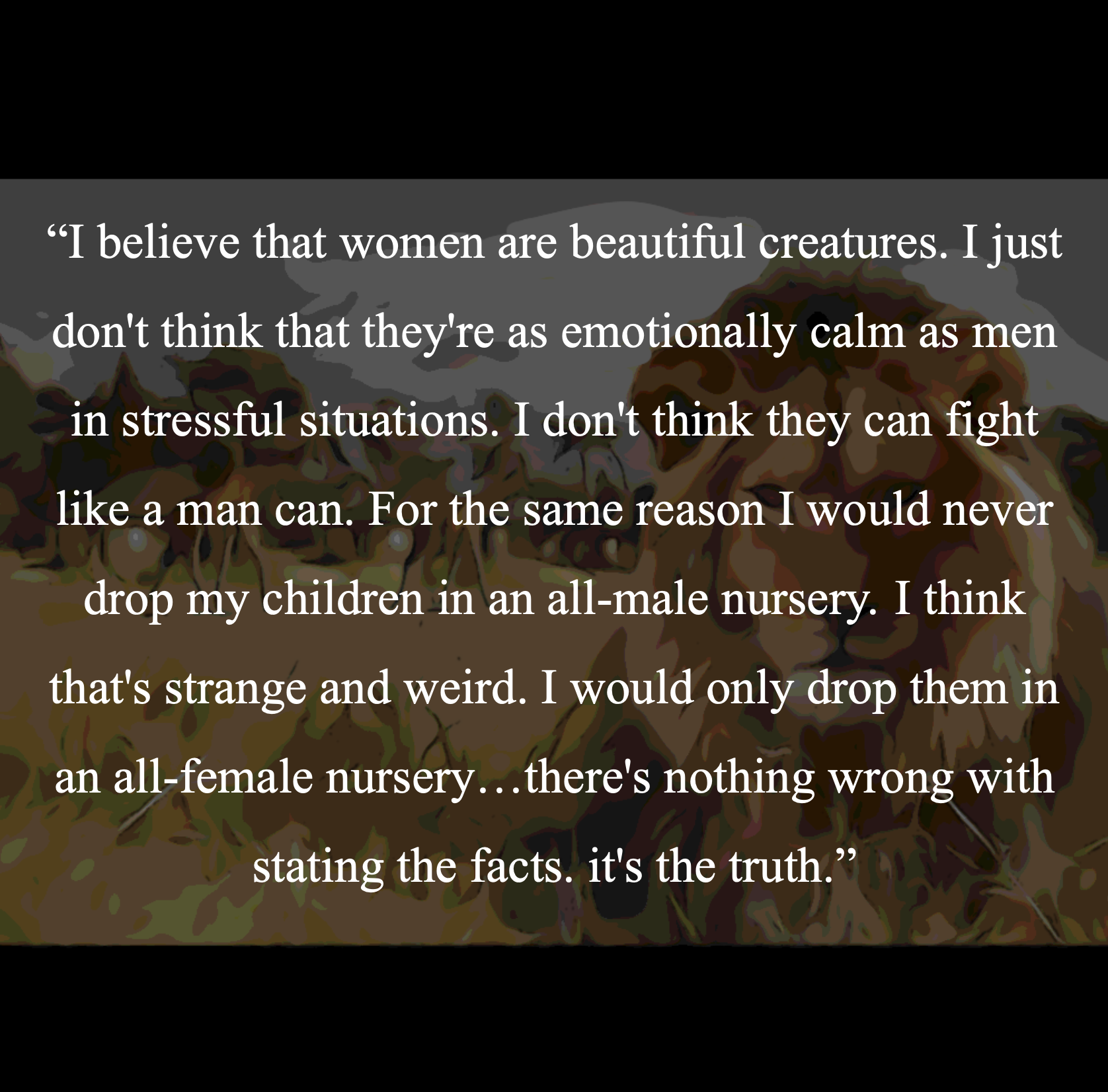
This quote highlights an overused argument that stems from a binary view of gender and its specific characteristics. Called the biological fallacy, Tate assumes that one factor — biological processes and genes — contributes to form behavior and characteristics. This also applies to the textbook excuse for infidelity: “I can’t help it, it’s in my genes. I’m programmed to want other women.”
“Men had to stay calm. [They] couldn’t and shouldn’t have shown weak emotions to appear strong and be a strong man to support your family through the history of civilization. So a good quality as a man and how boys grow up is related to having less emotions in stressful situations. And girls, being a good mother is being able to quickly catch what the child is thinking, connecting emotionally to them, and giving the leader, the man and the family good support. So I think it’s a biological, psychological feature that has been accumulated throughout history for a long time,” said Ji.
Also named naturalistic reductionism, such arguments completely abandon the significance of the environment (or the “nurture” of nature vs. nurture) and generalize all humans into two boxes.
“I’d rather drop them off in an all-female nursery, I think. I’m not trying to be gender-discriminating, but I believe there are specific skill sets that certain genders might be better at. I’m not saying it’s totally impossible, but I think there definitely are a few factors or a few aspects in work that one gender might be better than the other. There’s two genders only,” said Hyun.
Individuals who agree with the quote generally follow Hyun’s response: They deny the label of “discrimination” and explicitly state examples of Tate’s core message on “specific skill sets” that point towards biology with the addition of the binary view of gender.
Additionally, to say the argument speaks the truth exonerates Tate of the responsibility to prove and defend his statement and creates a vacuum that endorsers must fill. “It’s worded really strongly; I would say I have to agree. It’s not like, ‘Oh, you’re also emotional, you’re also loud.’ It’s like ‘you have better emotional abilities to connect to different things, which helps you become a better mother,’” said Ji.
Mr. Extreme:
Fallacy of extremes turns reason in an argument to absurdity with irrational evidence. It ignores all nuances and circumstances of reality and only considers the extremes: either A or B.
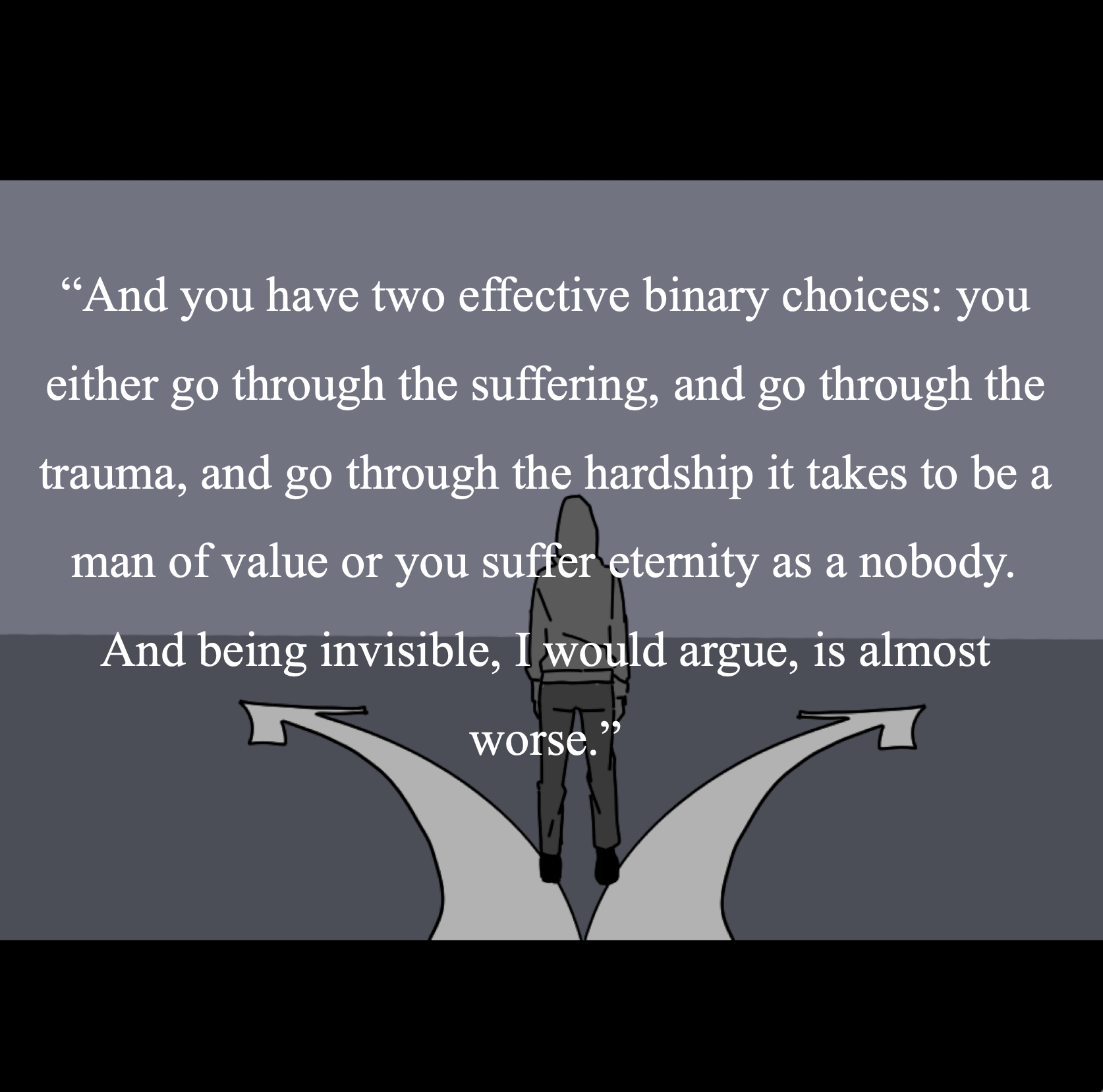
In this speech, Tate explicitly gives two options: face suffering or run away. This implores wanna-be “real” men to believe that the only way to become an “alpha male” is to suffer. Tate’s rapid, run-on sentences also often use anaphora — the repetition of a phrase. In this case, “and go through” emphasizes his point that only a man who suffers qualifies as valuable. This bold statement invokes a vital question: are they not valuable otherwise?
“I agree with certain parts. I mean he stresses how hard it actually is to get rich. It’s not easy, you have to put in a lot of work and dedication… I agree that traditional terms of man value authority, resources, and a stable family. But it sounds like he doesn’t take not rich yet happy people with good relationships and networks as beautiful,” said Ji.
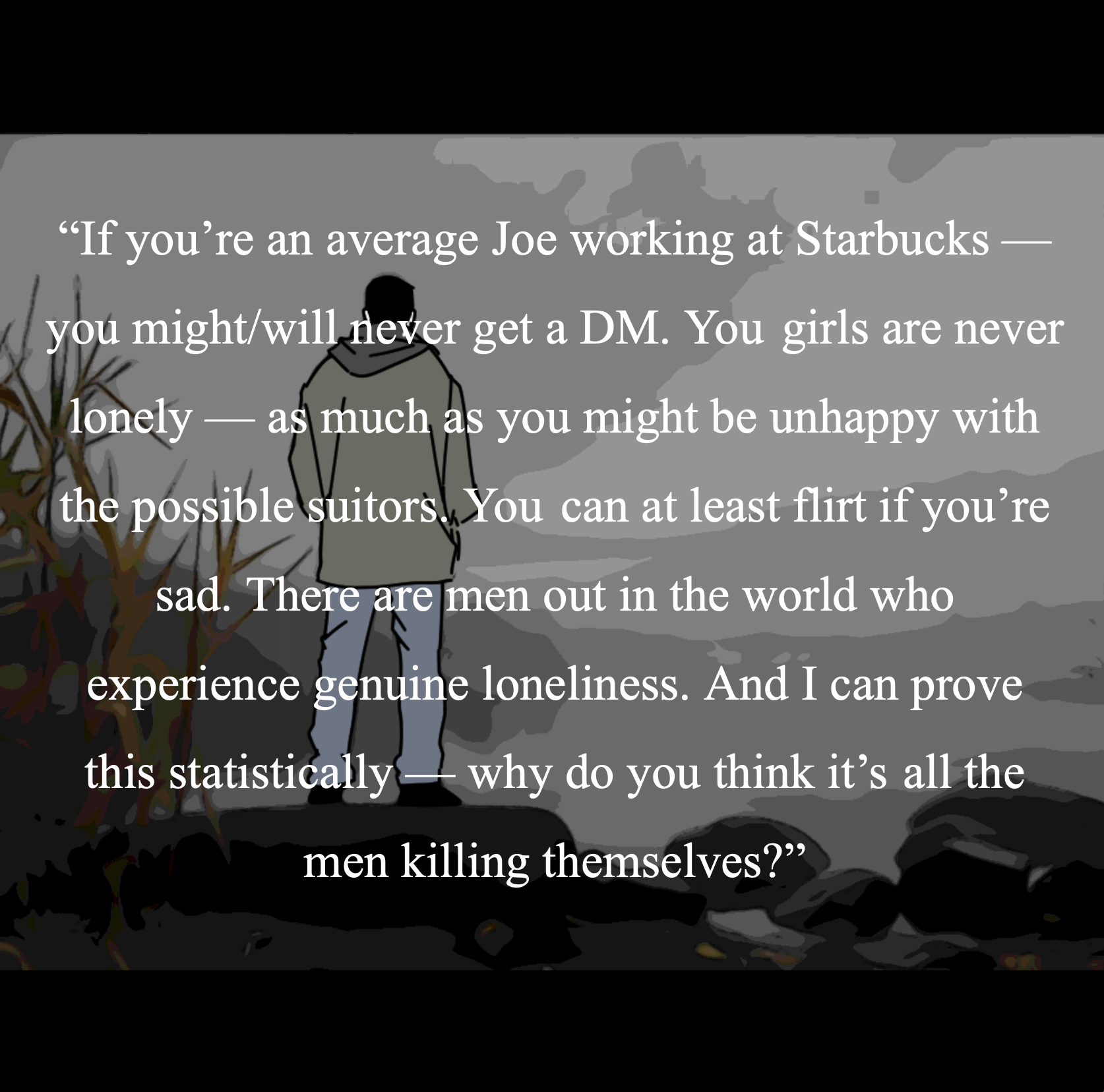
Andrew Tate pretends to understand what a majority of his insecure audience fears: the lack of “rizz” or popularity. Then, as he labels the listeners as basic and lonely, the hasty generalization fallacy creates an “us vs. them” mentality: “You girls are never lonely.”
“Of course, every quote is a generalization in a certain spectrum. You can always find counterexamples to everything, but in general, I think it is true,” said Ji.
The quote, from the get-go, seems harsh and extreme even to a follower of Tate. However, to then flip the argument and say “That goes with any other claim” inserts a leeway for followers. Instead of the quote’s content, they replace it with the mindset that haters will hate.
Tate attempts to use numbers to prove his statements statistically with the egregious statement, “Why do you think it’s all the men killing themselves?” The irony of the speech puts bottled-up, radical images into his audiences’ heads as it embodies the problem: the reason for high rates of suicide among men.
“You can’t slander me because I will state right now that I am absolutely sexist and I’m absolutely a misogynist,” said Tate in an appearance on the Anything Goes with James English.
“When I hear it, I just feel like yeah, it’s true,’ but it’s not really relevant to my life or anything,” replied Hyun.
Ironically, girls the same age as some of the young followers get trapped involved in sex work in numerous countries around the world as a consequence of the values Tate preaches. The juxtaposition between 15-year-old boys in Korea and their safety versus girls enslaved in this cycle enforced by Tate, the manosphere, horrifies conscious minds outside the rabbit hole.
“What I’m realizing more as I grow up and come towards the end of high school and adolescence is that there are a lot of things to value other than societal success. I think I’m doing a great job of just enjoying whatever comes to me,” said Ji.
Ultimately, Andrew Tate and other spokespeople of the manosphere feed off young men’s insecurities, and in turn, these victims’ worldviews form around fallacies. Strip the fanciful flare, and you will see the flaws of their falsehoods.





